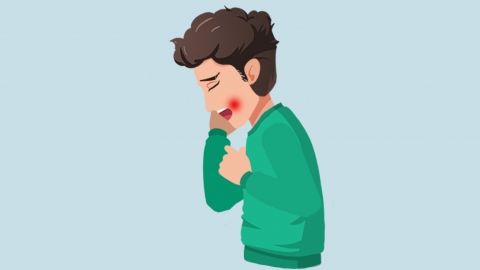Why do people develop gingivitis?
Generally, gingivitis may be caused by factors such as inadequate oral hygiene, hormonal changes, plaque buildup, tartar irritation, and anemia. It is recommended to seek medical attention promptly, identify the underlying cause, and receive symptomatic treatment under a doctor's guidance. The specific analysis is as follows:

1. Inadequate oral hygiene: Incomplete tooth brushing and failure to use dental floss allow food debris to remain in the gingival sulcus, leading to long-term irritation and inflammation of the gums. It is recommended to brush teeth for at least three minutes each time, twice daily, using a soft-bristled toothbrush and the Bass brushing technique. Clean between teeth with dental floss after meals, and regularly use mouthwash as an adjunct to cleaning.
2. Hormonal changes: During special physiological periods such as puberty, pregnancy, and menopause, fluctuations in hormone levels increase the gum tissue’s sensitivity to local irritants, making gingivitis more likely. Individuals in these groups should strengthen oral hygiene practices and undergo regular dental checkups to reduce local irritants.
3. Plaque accumulation: Dental plaque is a bacterial biofilm that adheres to the tooth surface and releases toxins that irritate the gums, causing redness, swelling, and bleeding. Under medical supervision, patients may use medications such as compound chlorhexidine mouthwash, hydrogen peroxide solution, or iodine glycerin to alleviate inflammation. Professional scaling should also be performed to remove plaque.
4. Tartar irritation: If plaque remains unremoved, it can calcify into tartar, which continuously compresses and irritates the gums, worsening inflammation. Ultrasonic scaling is required to remove tartar. After the procedure, antimicrobial mouthwashes such as metronidazole rinse, tinidazole rinse, or chlorhexidine rinse may be used to prevent infection.
5. Anemia: Anemia reduces the body's resistance, making the gums more susceptible to bacterial invasion and inflammation. Patients with anemia can take ferrous fumarate tablets, ferrous succinate tablets, or vitamin B12 tablets to improve their condition, along with localized periodontal treatment.
Maintaining good daily oral hygiene habits is essential. Avoid smoking and alcohol consumption, and reduce intake of spicy and irritating foods. Regular dental examinations and professional cleanings help detect and address gum problems early, preventing further progression of inflammation.




